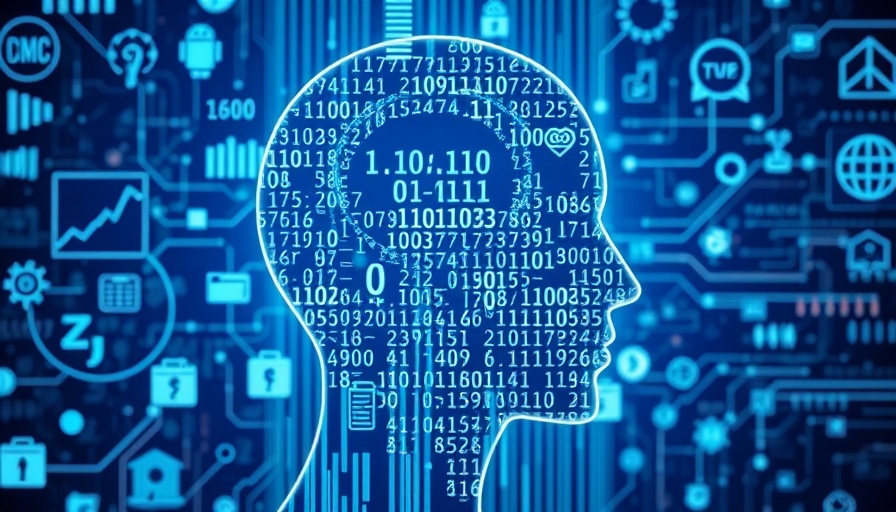
The Interplay of AI and Creativity in Music
Music and technology have long shared a complicated relationship, often navigating the tension between innovation and tradition. The emergence of AI in music production raises fundamental questions about the nature of creativity, the authenticity of sound, and whether machines can truly capture the human experience. As important decision-makers in tech-driven industries, it is crucial for you, as CEOs and marketing managers, to recognize that AI is not the end of genuine music; rather, it’s a new tool that could reshape the musical landscape.
Understanding AI's Role in Music Creation
Recent reports indicate that approximately 18% of songs uploaded to streaming platforms are now entirely generated by AI, leading to a staggering increase of over 20,000 AI-made tracks per day. This alarming statistic draws attention to the rapid evolution of how music is produced and consumed, particularly in an industry known for its slim margins for artists. The major music labels are already embroiled in lawsuits against AI music platforms for allegedly using copyrighted songs to train their models. These legal battles signify a shift in how we view authorship and ownership in an era where algorithms can compose melodies and lyrics.
A Tool, Not a Replacement: The Human Element
While automation can churn out songs at an unprecedented rate, AI lacks the emotional depth and unique human experience that infuse authenticity into music. The concern isn't merely about the proliferation of AI-generated music; it’s also about how it might overshadow the work of human musicians. AI certainly can serve as an incredibly effective creative assistant—helping artists brainstorm melody ideas or suggesting chord progressions—but it will never replicate the essence of human expression. At its best, AI can enhance the creative process, but it's essential that artists remain the heart and soul of their work.
Navigating the Ethical and Legal Terrain
The flood of AI-created music introduces ethical challenges concerning ownership and authenticity. As you engage with this technology, it’s essential to ask the critical questions: Who benefits from the use of AI in music? Are artists’ rights being adequately protected? The very foundation of the music industry is built on creativity that springs from human experience, and there is a risk that excessive reliance on AI could lead to an impersonal sonic landscape. Balancing innovation with ethical considerations is a must for business leaders in the tech and music industries.
Future Trends in Music and AI
Looking ahead, there are fruitful opportunities for collaboration between human musicians and AI tools. Specific genres may emerge that utilize AI’s strengths while celebrating human creativity. Additionally, as AI technology continues to evolve, it may incorporate more sophisticated understanding of emotional responses, potentially paving the way for collaborations that highlight the best of both worlds.
Actionable Insights for Business Professionals
As leaders in tech-driven environments, how can you navigate this evolving landscape? Stay informed about the developments in AI music technology and consider adopting tools that support rather than undermine human creativity. Encourage your teams to think critically about the ethical implications of using AI in creative endeavors, and champion responsible practices that protect artists’ rights. By doing so, you will not only be at the forefront of innovation but also promote an ecosystem where creativity thrives.
In conclusion, while concerns regarding the rise of AI in music are valid, they should not lead to panic or rejection. Instead, this chapter in the story of music can unfold exciting paths forward—bridging the gap between man and machine as collaborators in the creative process.
 Add Row
Add Row  Add
Add 




 Add Row
Add Row  Add
Add 

Write A Comment